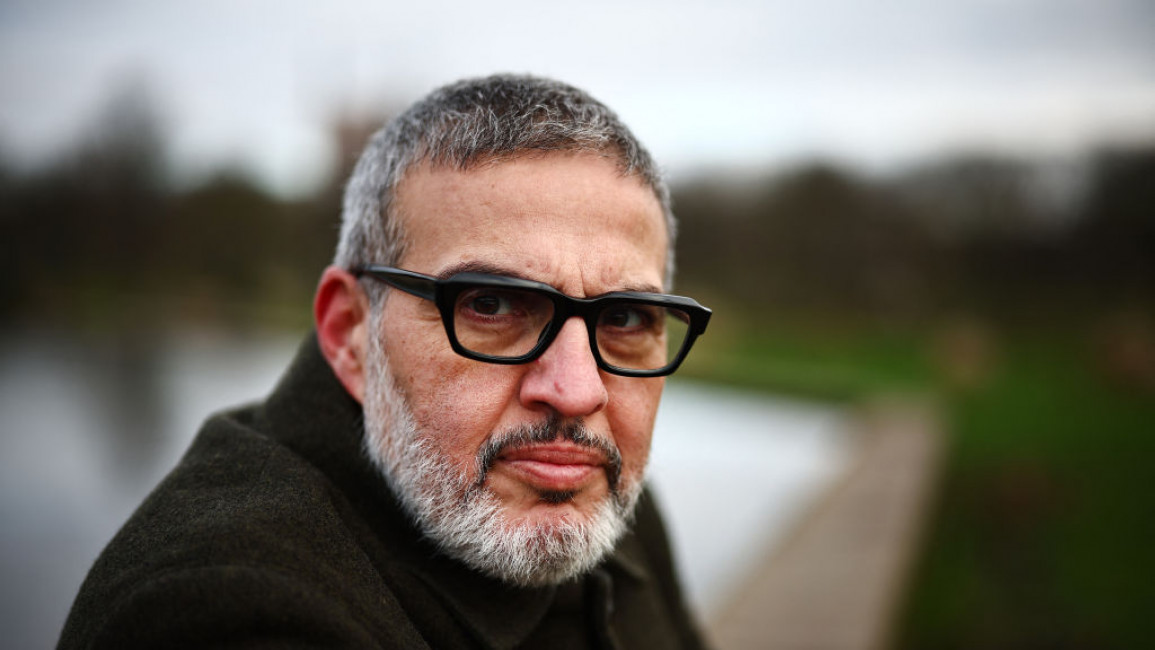French authorities deny entry to renowned British-Palestinian doctor Ghassan Abu Sitta
A renowned British-Palestinian surgeon was detained and barred from entering France upon arrival at the airport on Saturday - the second European country to ban him entry in just two months, marking the latest attempt to silence Palestinian voices amid the war on Gaza.
Dr. Ghassan Abu Sitta, who was traveling to France to provide testimony on his experience working in Gaza during the war at the French Senate, was denied entry upon his arrival by authorities at Paris' Charles de Gaulle airport.
He was informed that he was facing a one-year ban on entry to Europe, imposed by German authorities after his attempted visit last month to speak at a conference.
On Saturday morning, Abu Sitta wrote on social media site X that he was at Charles de Gaulle airport and "They [authorities] were preventing me from entering France. I am supposed to speak at the French Senate today."
The International Centre of Justice for Palestinians, an independent organisation of lawyers, politicians and academics, called it an "unacceptable harassment of a globally respected medical professional".
In a statement on Saturday, the International Centre of Justice for Palestinians said that Abu Sitta remained in French detention and had his mobile phone taken away.
"After arriving at Paris' Charles De Gaulle Airport, Dr Abu Sitta was informed by French authorities that the Federal Republic of Germany has enforced a Schengen-wide ban on his entry into Europe," the statement read.
"This comes on the day that he was due to appear in the French Senate to provide his testimony on Gaza's healthcare system and Israel's attacks against it."
Later on Saturday, Abu Sitta said that French authorities were forcing him to take the last return flight at night to the UK, in an act of "utter vindictiveness".
The New Arab reached out to Abu Sitta for comment.
The restriction follows an incident with authorities at Berlin airport in April, when Abu Sitta, who spent seven weeks working in Gaza’s hospitals in October and November, was suddenly blocked from entry and put on a flight back to the UK.
At the time he told The New Arab that German authorities had barred him from entering where he was due to speak at the Palestine Congress conference in Berlin, which was later shut down by German police in an alarming incident.
Writing a second post on X on Saturday, the plastic surgeon said: "Fortress Europe silencing the witnesses to the genocide while Israel kills them in prison."
Rights groups have noted that German authorities have conducted a major crackdown on Palestinian voices in recent months and effectively shut down any criticism of the Israeli government. Protests in support for Palestine have been prohibited and Arabs in Germany have reported a growing culture of repression.
Abu Sitta was recently appointed as rector of Glasgow University in Scotland, his alma mater, and has become one of the most high-profile and respected medical professionals working in Gaza. Since leaving, he has regularly spoken to the international media about the challenges endured by the Palestinian people stranded in the enclave.
I am at Charles De Gaule airport. They are preventing me from entering France. I am supposed to speak at the French Senate today. They say the Germans put a 1 year ban on my entry to Europe.
— Ghassan Abu Sitta (@GhassanAbuSitt1) May 4, 2024
Just two days after the outbreak of war on 9 October, he travelled to his hometown, Gaza City, and began working in al-Shifa Hospital and al-Ahli Baptist Hospital, performing dozens of surgeries on gravely wounded civilians.
In an article for Al Jazeera published on Friday, he described "a 43-day nightmare" of harrowing work under Israeli bombardment, during which he was forced to perform painful surgeries, including amputations, on injured children with insufficient anesthesia due to medicine shortages.
He has spoken at various briefings and conferences, sharing his experiences of working in Gaza. His testimony provides crucial documentation of Israel's systemic attacks on Gaza's health system over the past seven months.
At least 492 health workers have been killed in Israeli attacks, according to Gaza health authorities, while 24 hospitals have been rendered out of service, including the two hospitals where Abu Sitta worked.

![Members of the Algerian delegation threw roses into the Seine [Getty]](/sites/default/files/styles/image_330x185/public/2024-07/GettyImages-2162980872.jpg?h=199d8c1f&itok=h_3o_TOL)

![The Libyans were arrested at a farm in Mpumalanga province east of Johannesburg [Getty]](/sites/default/files/styles/image_330x185/public/2024-07/GettyImages-2162903568.jpg?h=199d8c1f&itok=4Qzg79i1)